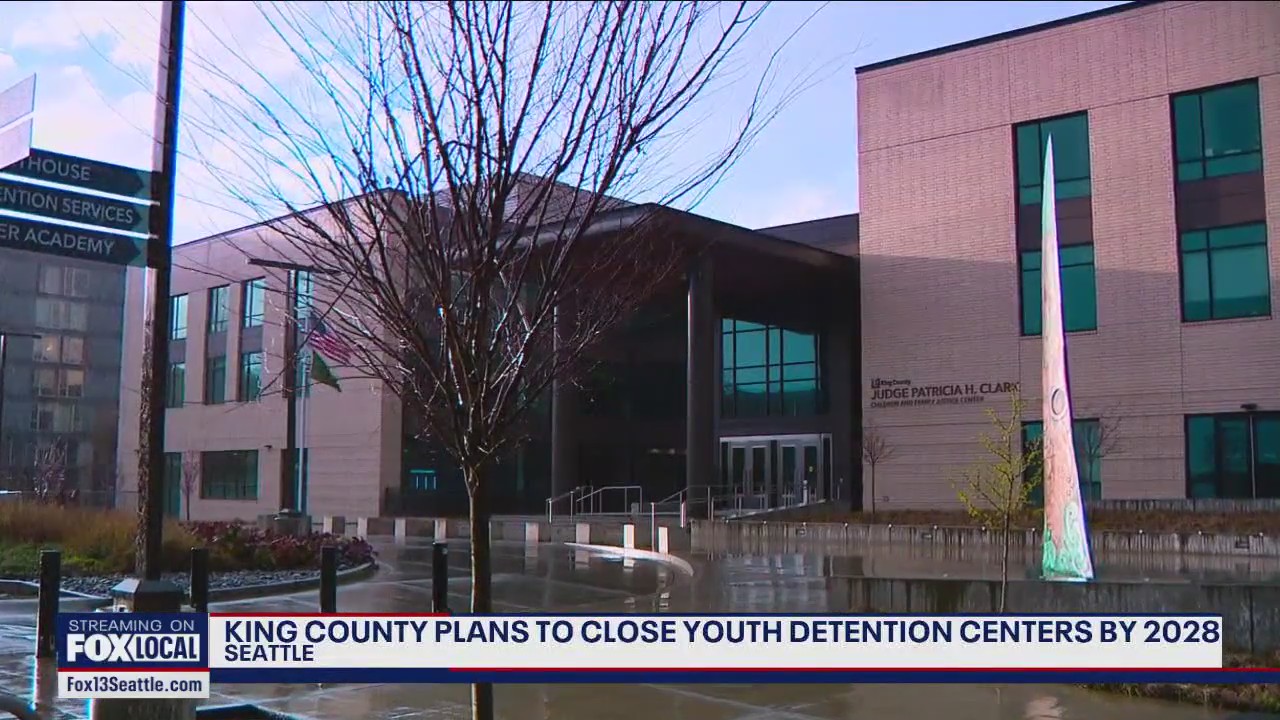'No locks, no cells' approach in youth detention expected by 2028

King Co. wants to close youth detention centers by 2028
The idea may be revolutionary, but it's ambitious for a four-year deadline.
SEATTLE - King County Executive Dow Constantine is pushing for a groundbreaking change in the juvenile justice system: the abolition of detention centers for teenagers by 2028. However, the path to achieving this ambitious goal is riddled with questions about its feasibility and what the alternative would entail.
In its place, Initiative Care and Closure, which is encompassed by six recommendations, including a respite and receiving center.
King County prosecutors described the concept of "no locks, no cells" as inspiring and revolutionary, but ambitious.
Assistant Chief of the Juvenile Division at the King County Prosecutor Attorney Office, Ben Santos, expressed concerns about the practicality of meeting the 2028 deadline. He emphasized the need for careful planning and sufficient resources to implement such a significant shift.
He pointed out 43 teens are currently being detained. Youth are currently detained for several crimes including murder, assault, robbery or gun crimes.
"I fear that they and those that walk into this facility after them will harm more people if we don't do this the right way," Santos said.
Recent incidents, including teens accused of serious crimes, have sparked intense debate about the necessity and effectiveness of detention. Shocking videos depicting young offenders engaging in criminal activities have further fueled public concern.
The initiative is stirring a debate.
Special Counsel for Criminal Practice and Policy at the Department of Public Defense, Katie Hurley argued that incarcerating youth only perpetuates a cycle of harm.
"Incarcerating youth harms them and makes them more likely to reoffend," Hurley said.
Presiding Judge at the Superior Court Hon. Ketu Shah, acknowledges the importance of secure detention in certain circumstances but advocates for a more rehabilitative approach.
"We agree with much of the recommendations, but we do defer and disagree with closing the detention at the CCFJC as a solution " Shah said. "At times we come across circumstances that need secure detention, and we need that to be separate from adult detention."
Statistics reveal racial disparities in the juvenile justice system, with 81% of children of color representing those detained, despite only making up 26 percent of the county’s population.
"We believe a solution is really reimagining how this facility can be used and accomplish our overarching goal in restoring youth in our community," Shah said.
The meeting aimed to facilitate open dialogue and lay out the groundwork for future actions. Key next steps include developing cost estimates and identifying county resources to support the initiative.
MORE YOUTH VIOLENCE NEWS
Garfield HS parents call for community safety following last week’s shootings
'Guitars Not Guns' aims to curb youth violence through musical exploration
13-year-old offered money, Pokemon cards for illicit videos of 9-year-old: docs
To get the best local news, weather and sports in Seattle for free, sign up for the daily FOX 13 Seattle newsletter.

